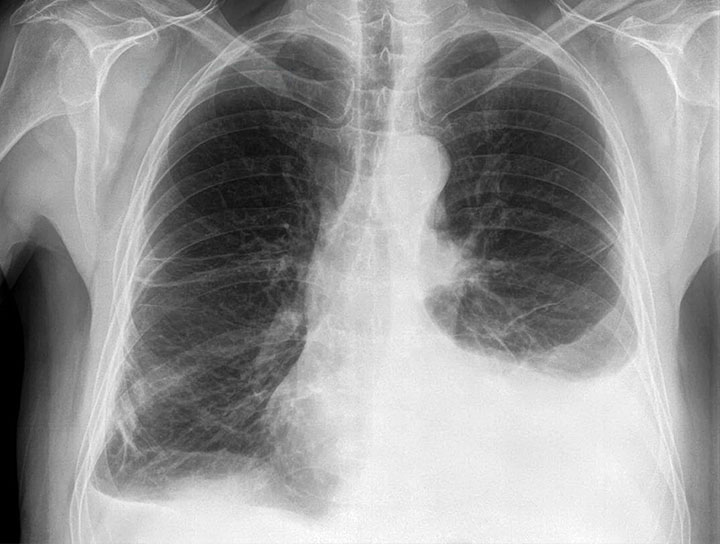Pleural Effusion

What is pleural effusion?
Pleural effusion is a collection of fluid around your lungs. Your provider has to get rid of this fluid with medicine or a procedure. Also, they need to diagnose and treat the condition that caused pleural effusion. Treatments range from medicine to surgery. Pleural effusion can happen more than once. Your outlook depends on what caused it.
Pleural effusion, which some people call “water on the lungs,” is the buildup of excess fluid between the layers of the pleura outside your lungs. The pleura are thin membranes that line your lungs and the inside of your chest cavity.
Normally, everyone has a small amount of fluid in their pleura. This fluid acts as a natural lubricant and makes it easier for your lungs to move when you breathe. But with pleural effusion, you have too much fluid around your lungs. This means your body is producing too much of the fluid or not absorbing enough of the fluid it makes.
Types of pleural effusion
Healthcare providers split pleural effusion into two types, depending on the kind of fluid around your lungs.
Excess fluid may be:
- Protein-poor and watery (transudative): Fluid of this kind comes from cirrhosis or heart failure, for example. This type of pleural effusion happens when there’s an increase in pressure from the fluid.
- Protein-rich (exudative): Fluid of this kind comes from cancer or an infection, for example. This type of pleural effusion happens because too much fluid is getting through your smallest blood vessels or your lymphatic system isn’t draining enough.
Treatment varies by type and cause.
How common is pleural effusion?
Pleural effusions are very common. Healthcare providers find pleural effusions in about 1.5 million people in the United States each year.
Symptoms and Causes
What are the symptoms of pleural effusion?
You may have unrelated symptoms due to the disease or condition that caused pleural effusion. Pleural effusion symptoms include:
- Chest pain. Coughing or deep breathing makes it worse.
- Dyspnea (shortness of breath, or difficult, labored breathing).
- Orthopnea (the inability to breathe easily unless you’re sitting up straight or standing up straight).
Some people with pleural effusion have no symptoms. They find out they have pleural effusion when they have a chest X-ray for another reason.
What causes pleural effusion?
There are many causes of pleural effusion, and some people have more than one. Depending on the cause, the excess fluid may be either protein-poor (transudative) or protein-rich (exudative). These two categories help providers determine the cause of the pleural effusion. A pulmonary embolism (PE) can fall under either category.
The most common causes of transudative (watery fluid) pleural effusions include:
